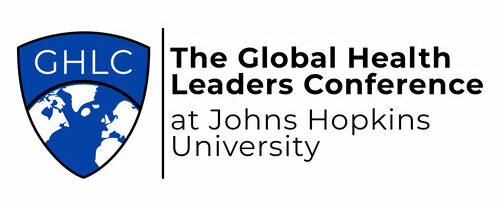Two students from Orange County were selected to speak this year at the Global Health Leaders Conference led by Johns Hopkins University, with attendees that included Nobel Laureates, professors, world-renowned professors and humanitarians.

The conference is an annual program that works to develop the next generation of leaders in global health, public health and medicine. It includes a student speaker series, where selected students in grades nine through 12 present on their own global health-related work or a topic of their interest.
Speakers from around the world presented virtually over the summer, including Lance Yeh, a senior from Troy High School in the Fullerton Joint Union High School District, and Ayati Mishra, a junior at Tesoro High in the Capistrano Unified School District.
Presentation topics for the 2022 student speaker series included pandemic preparedness, food insecurity, climate change, period poverty and stigma, antibiotic resistance, child poverty and more.
Taking atrial fibrillation to heart
A Troy High School senior who is also serving as captain of the varsity tennis team believes there needs to be several changes in the way patients with atrial fibrillation are being treated.
In his presentation, Lance explained that atrial fibrillation is an irregular, often rapid heart rate that commonly causes poor blood flow. The Centers for Disease Control and Prevention estimates that 12.1 million people in the United States will have atrial fibrillation in 2030. In the context of global health, there are an estimated 33 million people worldwide who suffer from this chronic health condition, which increases a patient’s risk for strokes.
After spending a summer as a research intern for Johnson & Johnson’s medical device company, Biosense Webster, and recently completing an internship for Abbott Laboratories, Lance has developed a deep understanding for the technology and types of surgeries that patients need to treat their condition.
Lance sees access as a big factor in addressing atrial fibrillation. He believes with more research and more affordable treatment options, patients living in developing nations would have better chances of surviving.
“The biggest and most important thing to do is increase awareness education,” the high school senior said. “By increasing awareness, we can prevent the mistreatment and under-diagnosis of atrial fibrillation.”
Lance is interested in pursuing a career in the biomedical engineering field.
“It is not uncommon for me to receive notice of amazing accomplishments or work our students have undertaken or completed,” said Dr. Will Mynster, principal of Troy High School. “Often I think to myself, there is no way I was doing anything like that when I was in high school, and 99 percent of the time I am right.”
Raising awareness for Alzheimer’s disease
Participating in the conference was a dream come true for Tesoro High junior Ayati Mishra, who aspires to become a physician.
“It was also really cool to hear from students,” Ayati said. “They were from almost every continent.”
As excited as she was, Ayati remained focused as she spoke to attendees about her deep concern about Alzheimer’s disease — especially late-onset Alzheimer’s, which affects 95 percent of all patients. By contrast, the genetic-based, familial cases account for about 5 percent.
“From diagnosis to eternal rest, Alzheimer’s disease has huge physical and emotional impacts on the patient and their loved ones,” Ayati said. “There is no cure for Alzheimer’s disease so this issue is extremely important.”
The progressive disease begins with mild memory loss and can seriously affect a person’s ability to carry out daily activities. In 2020, as many as 5.8 million Americans were living with Alzheimer’s disease. According to the Alzheimer’s Association, that number is projected to reach 12.7 million by 2050.
Ayati said most of the models that researchers are using to understand the disease look at familial cases when they should consider models like hAβ-KI. The latter looks at age-dependent changes — or how people age — instead of a patient’s genetic makeup.
Ayati’s goal in presenting was to inspire global health experts to expand their research of the disease, develop additional treatments and possibly find a cure.
